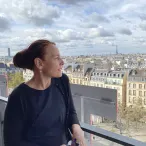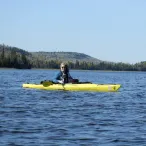Media Literacy Summit
The Jacobson Center for Comprehensive Literacy will host a 2.5-day media literacy summit focused on the Balkan/Eastern European region, to be held in Minneapolis from May 27-29, 2025.
Six international scholars and media literacy practitioners from Albania, Bosnia and Herzegovina, Bulgaria, Greece, and Hungary have been invited to participate.
Those six participants will join U.S.-based communication scholars Bettina Fabos, Christopher Martin, and Catherine Palczewski, all at the University of Northern Iowa; UNI Fulbright scholar-in-residence Arta Berisha from Kosovo, Iowa State University professor of journalism Daniela Dimitrova, and JCCL Director Lori Norton-Meier for this invitation-only media literacy summit.
Handbook authors
The authors of the handbook are critical scholars who have written the leading textbooks in their fields. Drs. Bettina Fabos and Christopher Martin are co-authors of Media and Culture: Mass Communication in a Digital Age and Media Essentials: A Brief Introduction, both published by Macmillan. Dr. Catherine Palczewski is co-author of Communication: A Critical Introduction, published by Sage.
Summit planner,
Arta Berisha
Fulbright Scholar-in-Residence Arta Berisha from Kosovo is bringing her expertise in journalism and disinformation analysis to the Jacobson Center for Comprehensive Literacy and UNI’s Department of Communication and Media over the 2024-2025 academic year.
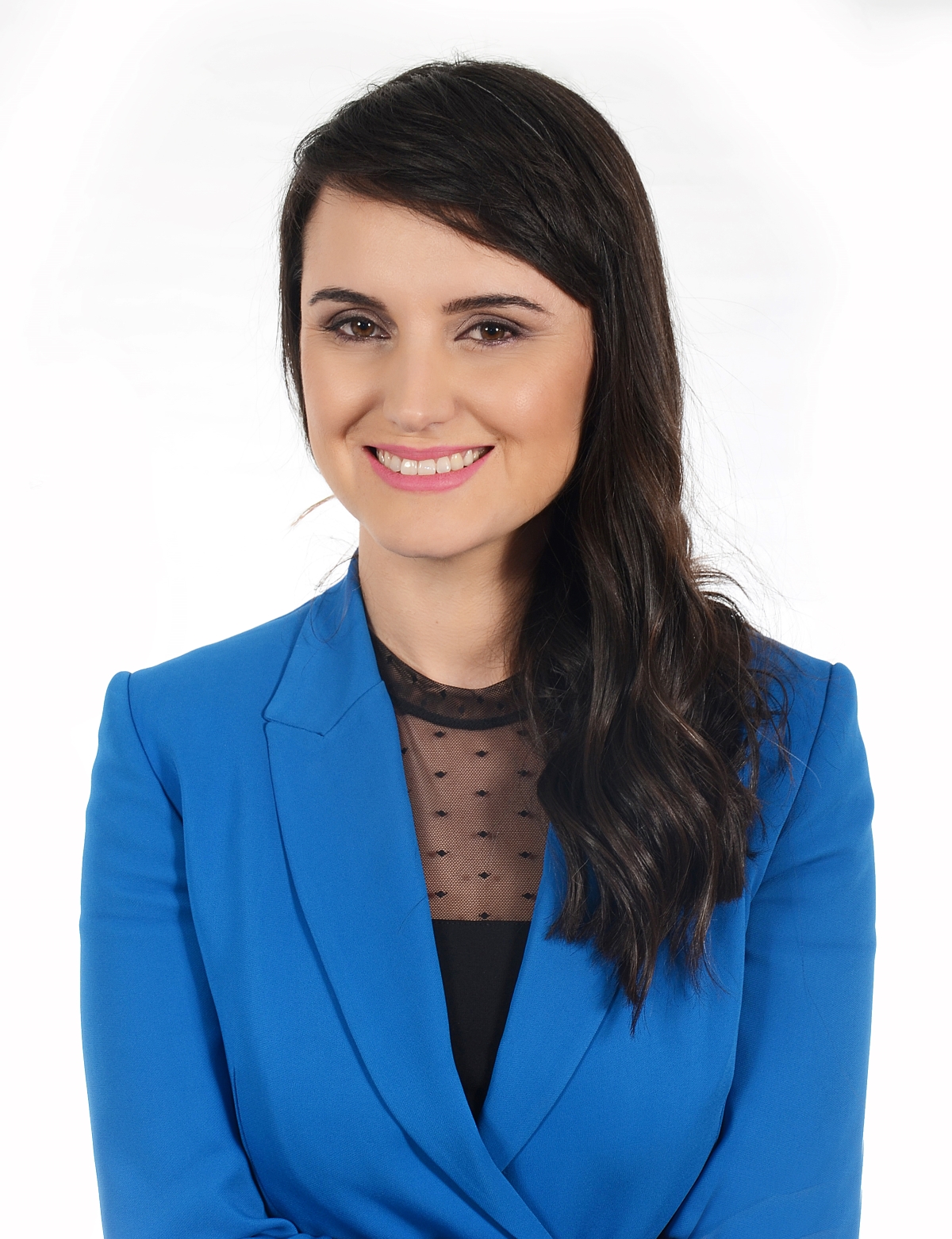
Berisha is currently pursuing her PhD at the University of Leicester and was selected for the Fulbright award by the Fulbright Foreign Scholarship Board. Her research critically examines how external factors such as social media and the internet are transforming journalism, focusing on changes in news routines and the detrimental effects of fake news on the profession.
In UNI’s Department of Communication and Media, Berisha is assisting with media literacy on campus. She is also collaborating with UNI professors Drs. Bettina Fabos (emeritus), Christopher Martin and Catherine Palczewski on the final module of their OER handbook: a product of UNI's Open Educational Resource initiative, which encourages instructors to develop free textbooks and other pedagogical content licensed with the permission to reuse, adapt and share widely. To this end, Berisha is adapting the handbook for a Balkan audience.
Invited Scholars and Practitioners
Dr. Nikos S. Panagiotou is Professor, School of Journalism and Mass Media Communication, Aristotle University. He has been a visiting Professor at APU University, a DAAD Scholar at Deutsche Welle, Chevening Scholar of the Foreign and Commonwealth Office UK, RCAP Scholar from APU University Japan, Scholar to Beijing Foreign Studies University, Scholar at Sabanci University (Turkey), and Scholar of the State of Luxembourg. He has been awarded the following scholarships: Chevening Scholar of the Foreign and Commonwealth Office UK, RCAP Scholar from APU University Japan, Scholar to Beijing Foreign Studies University, Scholar of the State of Luxembourg. He has an extensive research work which has been funded from Google (DNI Initiative fund). He is the initiator and organizer of Thessaloniki International Media Summer Academy. He serves as the President of Digital Communication Network Global, Director of the Peace Journalism Lab and oversees the International Center for the Safety of Journalists and Media Professionals.
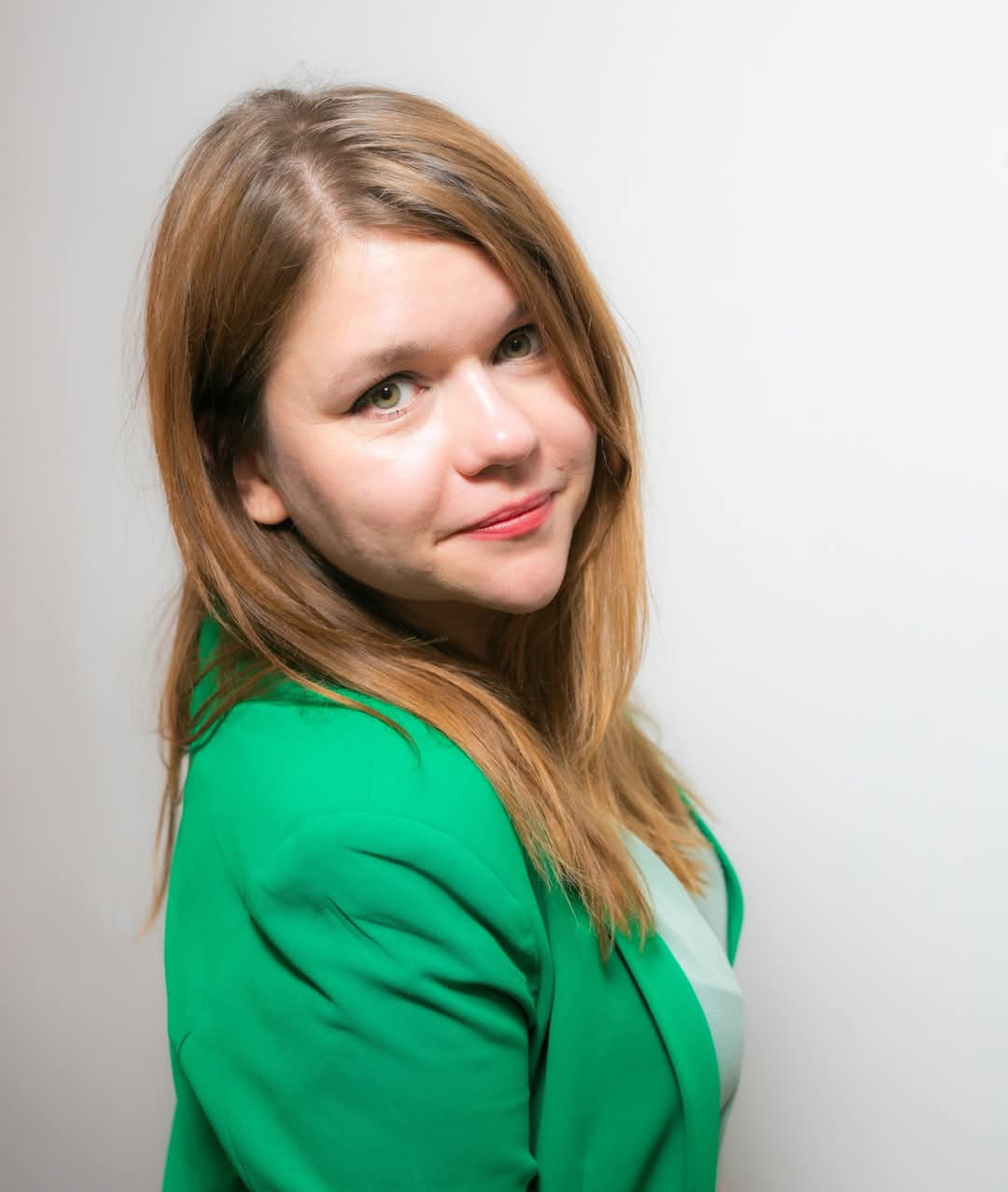 Dr. Anida Sokol is a lead researcher and editor at Mediacentar Sarajevo. She has authored numerous studies on media and journalism in Bosnia and Herzegovina and the Western Balkans, including on legislative and regulatory frameworks, media freedoms, media consumption habits, media financing and media ownership transparency. She has been working as a trainer in solutions journalism, media literacy and information verification. She is the editor of a specialized magazine on media and journalism Media.ba. She previously taught Politics and the Media and Political Communication at the International Burch University and at the SSST in Sarajevo, and has worked as a consultant for international organizations on media freedoms and freedom of expression. She has a master’s degree in English language and literature from the University of Sarajevo, Faculty of Philosophy, and a PhD in European history from Sapienza University in Rome, Department of Political Sciences.
Dr. Anida Sokol is a lead researcher and editor at Mediacentar Sarajevo. She has authored numerous studies on media and journalism in Bosnia and Herzegovina and the Western Balkans, including on legislative and regulatory frameworks, media freedoms, media consumption habits, media financing and media ownership transparency. She has been working as a trainer in solutions journalism, media literacy and information verification. She is the editor of a specialized magazine on media and journalism Media.ba. She previously taught Politics and the Media and Political Communication at the International Burch University and at the SSST in Sarajevo, and has worked as a consultant for international organizations on media freedoms and freedom of expression. She has a master’s degree in English language and literature from the University of Sarajevo, Faculty of Philosophy, and a PhD in European history from Sapienza University in Rome, Department of Political Sciences.
Dr. Jacob Udo-Udo Jacob is the Panitza Memorial Endowed Executive Director of the Center for Information, 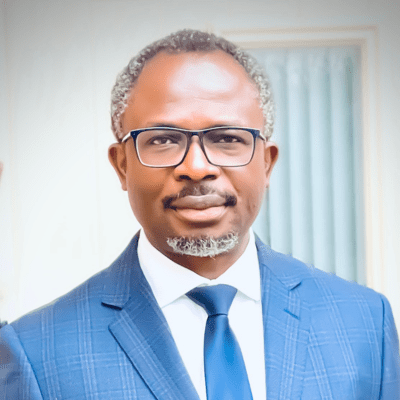 Democracy, and Citizenship at the American University in Bulgaria. He previously served as the Under-Secretary-General for Research, Evaluation, and Foresight at the Organisation of Southern Cooperation (OSC). Before joining the OSC, Jacob was the Dean of Graduate School and Research at the American University of Nigeria (AUN). He was the Oversight Chair of the Atiku Institute—the development, research, and enterprise arm of the university. He previously held academic appointments at the Center on International Cooperation at New York University and the Department of International Studies at Dickinson College, US. An expert in strategic and development communications in contexts of war and peace, Jacob has provided expert consultation and policy advice to various governmental and intergovernmental organizations, including the World Bank, USAID, and the UN's Department of Peace Operations. He led an international academic team to revise the UN’s policy on public information and strategic communication in support of disarmament, demobilization, and reintegration (DDR) of combatants and co-drafted the revised Public Information and Strategic Communication Module of the UN’s Integrated DDR Standards (IDDRS).
Democracy, and Citizenship at the American University in Bulgaria. He previously served as the Under-Secretary-General for Research, Evaluation, and Foresight at the Organisation of Southern Cooperation (OSC). Before joining the OSC, Jacob was the Dean of Graduate School and Research at the American University of Nigeria (AUN). He was the Oversight Chair of the Atiku Institute—the development, research, and enterprise arm of the university. He previously held academic appointments at the Center on International Cooperation at New York University and the Department of International Studies at Dickinson College, US. An expert in strategic and development communications in contexts of war and peace, Jacob has provided expert consultation and policy advice to various governmental and intergovernmental organizations, including the World Bank, USAID, and the UN's Department of Peace Operations. He led an international academic team to revise the UN’s policy on public information and strategic communication in support of disarmament, demobilization, and reintegration (DDR) of combatants and co-drafted the revised Public Information and Strategic Communication Module of the UN’s Integrated DDR Standards (IDDRS).
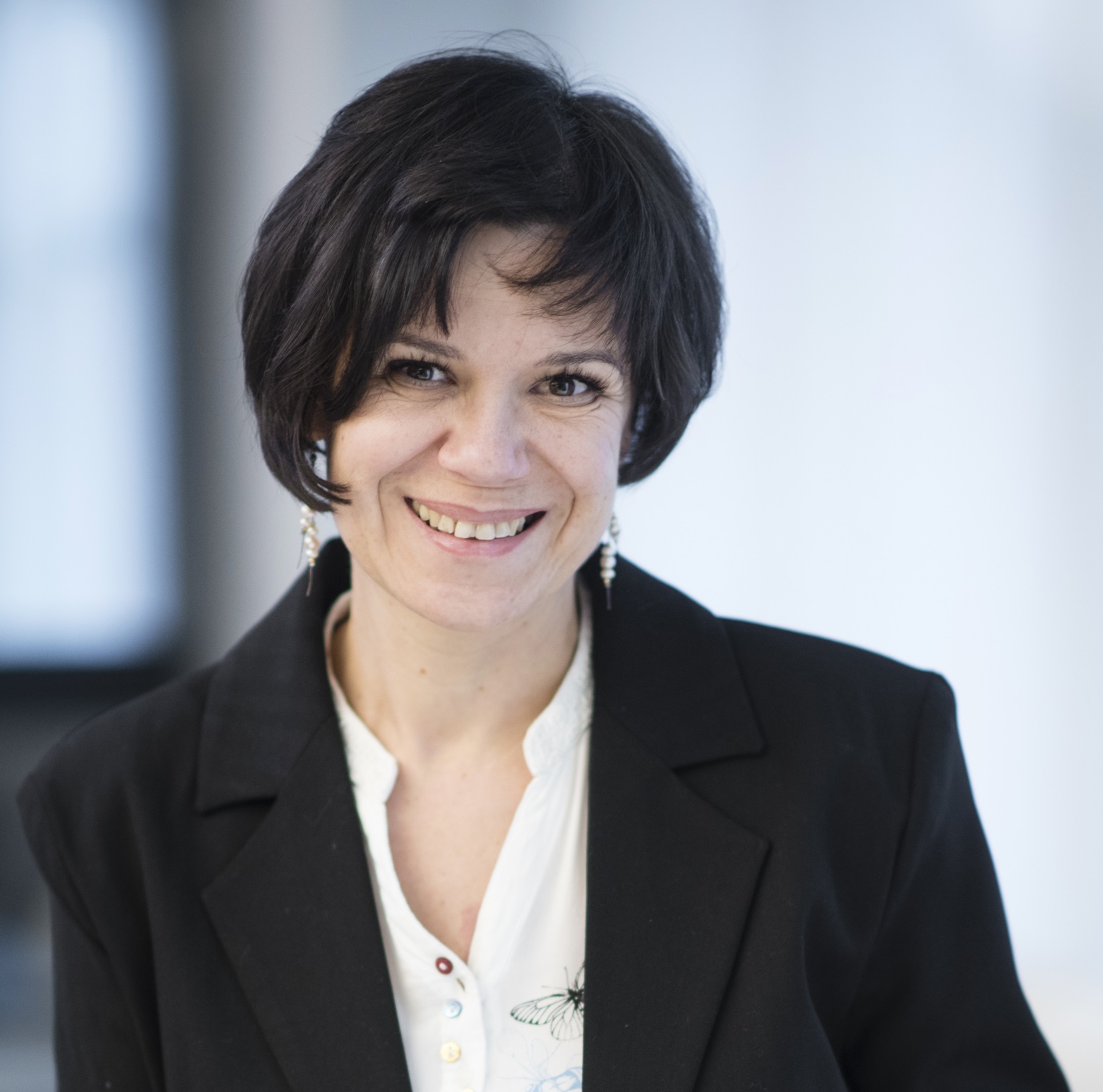
Zsuzsanna Kozák is the founder-director of Visual World Foundation (VWF), a Hungary-based NGO established in Budapest in 2004. The VWF works for social justice and intersectoral cooperation through media literacy education, educational documentary film production and intercultural visual arts projects. As a media literacy education advisor at the Budapest Institute of Education, Zsuzsanna participated in the course design of the new primary and high school subject Moving Image Culture and Media Studies and its introduction into the National Core Curriculum. She designed and organised in-service teacher education courses and participated in the methodological development of the National High School Competition in Media Literacy, which she has been coordinating for more than 20 years. She is co-author of the textbook Creative Methods in Media Education and editor of a media awareness textbook series published by the National Media and Infocommunication Authority. Recently, Zsuzsanna’s interests have included the study of power relations within communities, supporting meaningful equality-based collaborations in various forms, e.g. a) documentary production with Roma youth, in collaboration with the Canadian Indigenous mobile film studio “Wapikoni”, b) cooperation skills training through film crew settings created for this purpose, c) business coaching with filmmakers, as well as studying the well-being facilitation and intimacy coordination to reduce the harm of power plays in the film industry.
Dr. Jonila Godole is a lecturer at the Department of Journalism and Communication, University of Tirana, and the director of the Institute for Democracy, Media and Culture since 2014, whose focus, among others, is raising the awareness of the youth on the country’s communist past. She studied among others political sciences and sociology at Goethe University in Frankfurt am Main, Germany. She has completed a PhD in journalism culture in the post-communist Albania at the University of Tirana. She was one of the first journalists after 1990, especially well-known for her interviews of high level politicians and political articles. Godole is the author of the monography “Albanian Journalism in Transition” (Papirus 2014). Her research interests include comparative media systems, journalism education in transitional countries, political communication, media and memory studies etc. Godole is also a well known author and translator of German literature, and has won several prizes in Albania and abroad.
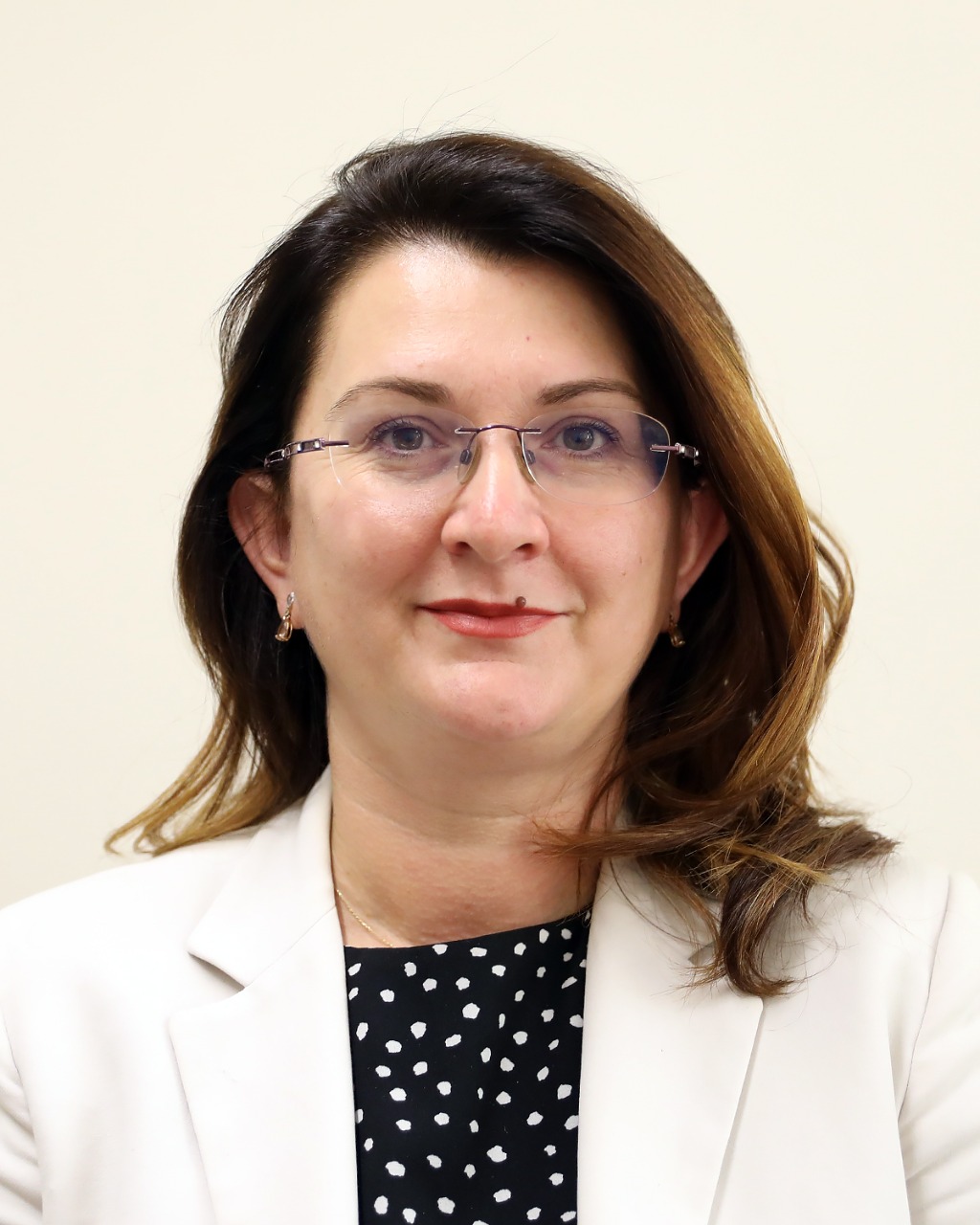 Elira Çanga is a journalist and communication professional, media trainer and educator from Albania. She has 20 years of experience divided between active journalism, media development and communication for international organizations. During 2022-2023, she served as a media and communication adviser to the President of Albania, planning strategically media relations and appearances as well as communication approach of the institution. She holds a Masters in EU Studies and is currently earning her PhD at the Walter Cronkite School of Journalism, Arizona State University. Elira started her career as a journalist early on, right in 1999 when the situation in the Balkans was in turmoil and worked for Albanian national news agency, different local newspapers while establishing a TV program on regional and foreign affairs “Diplomaticus” for News 24 TV. She specializes in radio journalism and worked as a local producer for the BBC. She dived into media development working for different international organizations as the Organization for Security and Co-operation in Europe (OSCE) and USAID aimed at modernizing the public service media in her country, enriching the journalism curriculum at the public school of journalism, University of Tirana and guiding the establishment of the first Albanian fact-checking service. Elira has spent the last ten years working on media development implementing projects supporting investigative reporting and fact-checking, as well as training and mentoring young journalists on media and information literacy and countering disinformation online.
Elira Çanga is a journalist and communication professional, media trainer and educator from Albania. She has 20 years of experience divided between active journalism, media development and communication for international organizations. During 2022-2023, she served as a media and communication adviser to the President of Albania, planning strategically media relations and appearances as well as communication approach of the institution. She holds a Masters in EU Studies and is currently earning her PhD at the Walter Cronkite School of Journalism, Arizona State University. Elira started her career as a journalist early on, right in 1999 when the situation in the Balkans was in turmoil and worked for Albanian national news agency, different local newspapers while establishing a TV program on regional and foreign affairs “Diplomaticus” for News 24 TV. She specializes in radio journalism and worked as a local producer for the BBC. She dived into media development working for different international organizations as the Organization for Security and Co-operation in Europe (OSCE) and USAID aimed at modernizing the public service media in her country, enriching the journalism curriculum at the public school of journalism, University of Tirana and guiding the establishment of the first Albanian fact-checking service. Elira has spent the last ten years working on media development implementing projects supporting investigative reporting and fact-checking, as well as training and mentoring young journalists on media and information literacy and countering disinformation online.
Summit Location: Minneapolis, USA
Minneapolis
Minneapolis has a thriving downtown with a vibrant arts scene, diverse neighborhoods, numerous parks and is nested within an abundance of rivers lakes. The city is consistently ranked as one of the best places to live for its high in quality of life, and has a rich cultural offering, including theaters, museums, music festivals. Here is a link for things to do.

Photo of Stone Arch Bridge by Chad Davis, CC-BY. Photo of Minneapolis skyline by Bobak Ha'Eri, CC-BY-SA, https://en.m.wikipedia.org/wiki/File:2008-0712-MPLS-panorama.JPG
Open Book Bookstore and Cafe
Our participants will gather at a meeting venue above the Open Book bookstore, located at 1011 Washington Avenue South. Open Book is a literary and arts community. And the bookstore is close to many amenities and walkable Minneapolis attractions, such as the Stone Arch Bridge across the Mississippi River. The FRGMNT cafe operates downstairs. 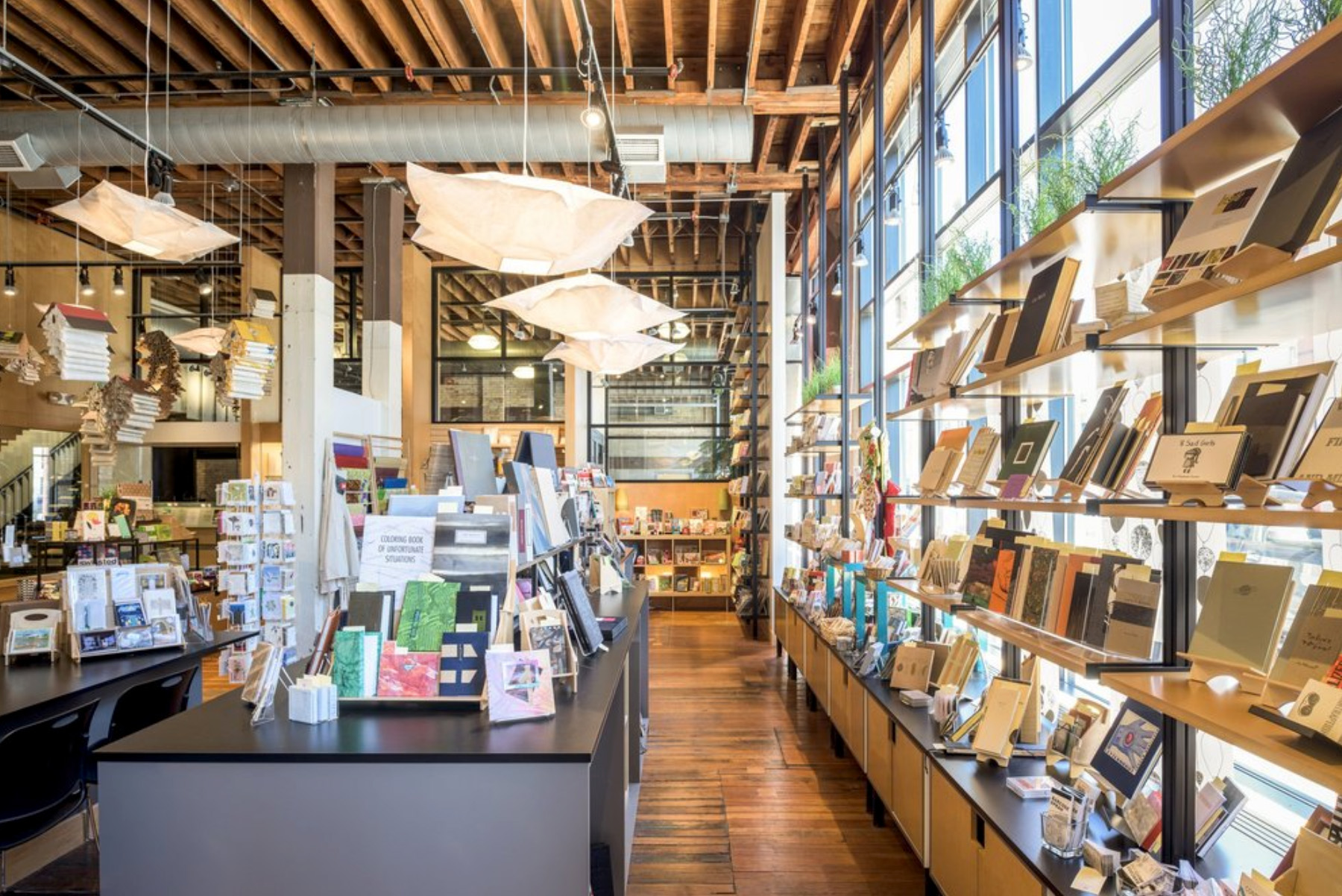
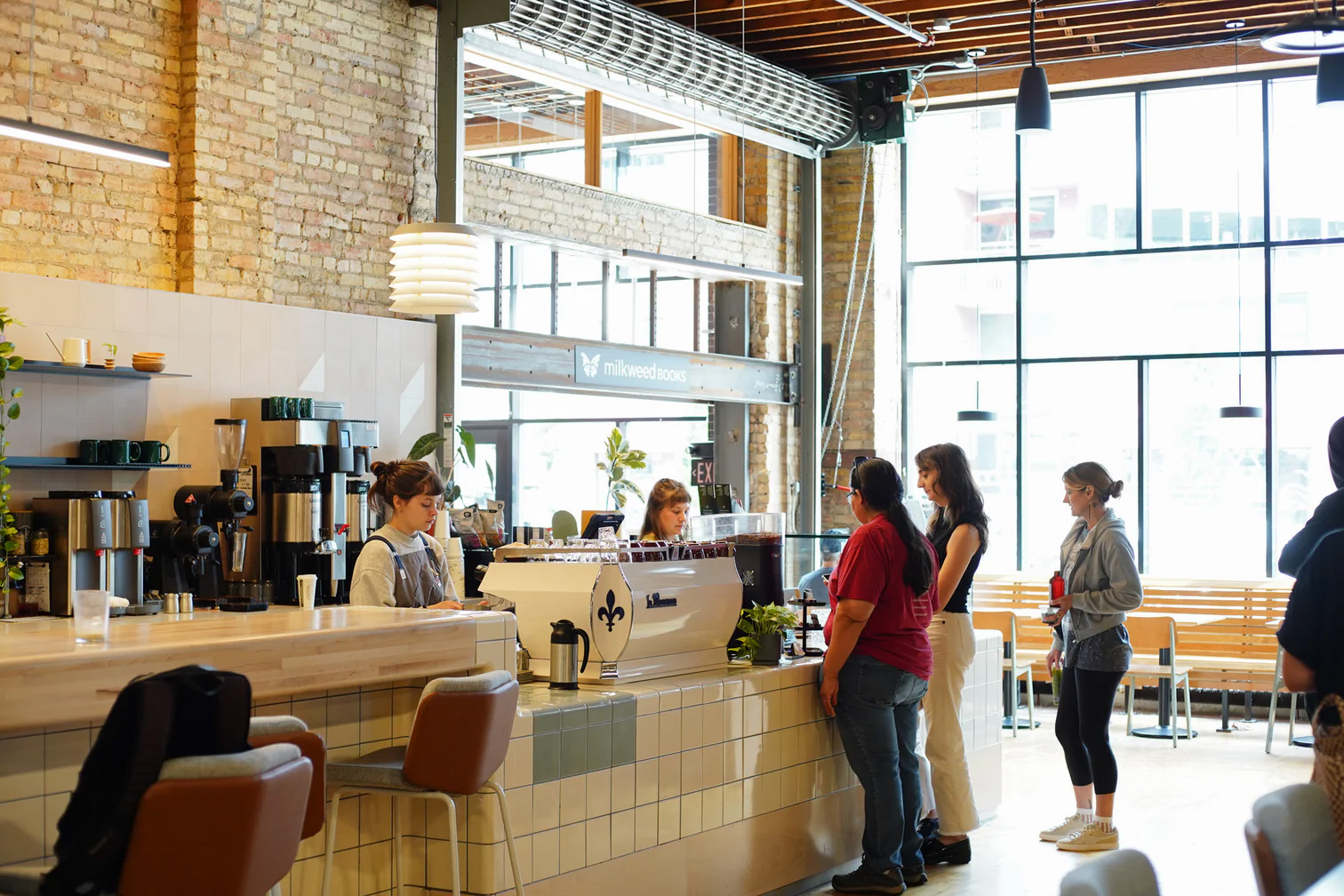
Our Meeting Room
Our meeting space will give us lots of room to think, talk, and collaborate. An upstairs outside patio is a perfect opportunity to step away in small groups or individually.



Directions from the Minneapolis Airport to Aloft Minneapolis
We will stay at the Aloft Minneapolis Hotel. Here are some brief instructions for getting to Minneapolis and taking the easy light rail train to our hotel.
Airport: Minneapolis International Airport (MSP).
Arrival: Terminal 1 (most likely).
Hotel: Aloft Minneapolis: 900 Washington Avenue South, Minneapolis; +1 612-455-8400
You are welcome to take a taxi or uber to the hotel, but we really recommend taking the Light Rail ($2 per person, 20 minutes, direct line, 9 stops). The Light Rail “Blue Line” which leads to the hotel leaves from the Minneapolis airport: follow the signs at the Ground Transportation Level and take the Blue Line from where it starts (the airport) to the end stop: the U.S. Bank Stadium station.

From the U.S. Bank Stadium stop, simply walk a few blocks to the Aloft hotel.


Minneapolis
Minneapolis has a thriving downtown with a vibrant arts scene, diverse neighborhoods, numerous parks and is nested within an abundance of rivers lakes. The city is consistently ranked as one of the best places to live for its high in quality of life, and has a rich cultural offering, including theaters, museums, music festivals. Here is a link for things to do.

Photo of Stone Arch Bridge by Chad Davis, CC-BY. Photo of Minneapolis skyline by Bobak Ha'Eri, CC-BY-SA, https://en.m.wikipedia.org/wiki/File:2008-0712-MPLS-panorama.JPG
Open Book Bookstore and Cafe
Our participants will gather at a meeting venue above the Open Book bookstore, located at 1011 Washington Avenue South. Open Book is a literary and arts community. And the bookstore is close to many amenities and walkable Minneapolis attractions, such as the Stone Arch Bridge across the Mississippi River. The FRGMNT cafe operates downstairs. 

Our Meeting Room
Our meeting space will give us lots of room to think, talk, and collaborate. An upstairs outside patio is a perfect opportunity to step away in small groups or individually.



Directions from the Minneapolis Airport to Aloft Minneapolis
We will stay at the Aloft Minneapolis Hotel. Here are some brief instructions for getting to Minneapolis and taking the easy light rail train to our hotel.
Airport: Minneapolis International Airport (MSP).
Arrival: Terminal 1 (most likely).
Hotel: Aloft Minneapolis: 900 Washington Avenue South, Minneapolis; +1 612-455-8400
You are welcome to take a taxi or uber to the hotel, but we really recommend taking the Light Rail ($2 per person, 20 minutes, direct line, 9 stops). The Light Rail “Blue Line” which leads to the hotel leaves from the Minneapolis airport: follow the signs at the Ground Transportation Level and take the Blue Line from where it starts (the airport) to the end stop: the U.S. Bank Stadium station.

From the U.S. Bank Stadium stop, simply walk a few blocks to the Aloft hotel.


CONTACT
Arta Berisha, Fulbright Scholar-in-Residence: arta.berisha@uni.edu
Dr. Bettina Fabos: bettina.fabos@uni.edu
Other Participants
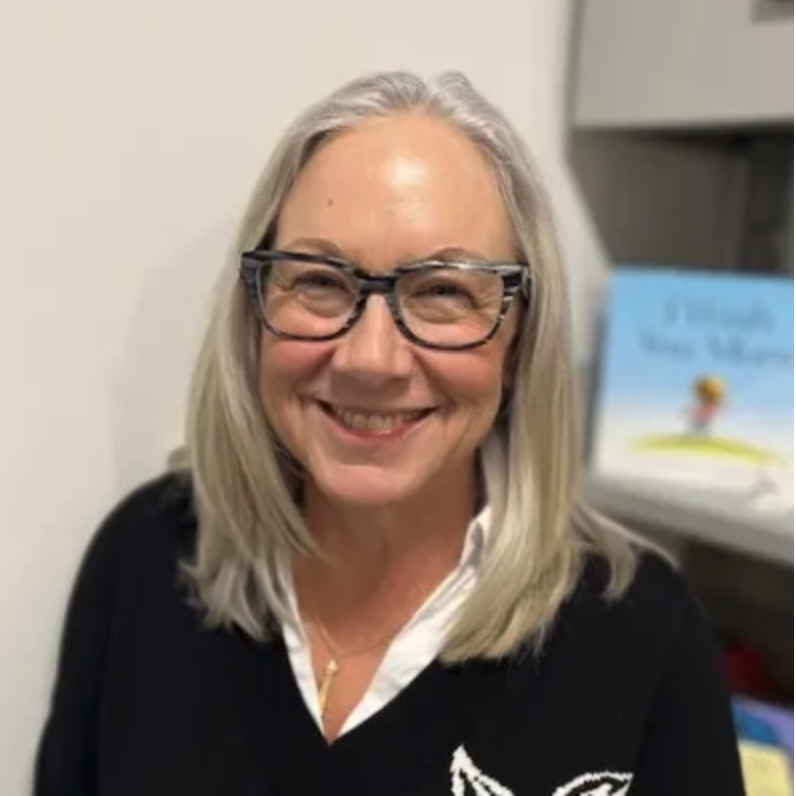 Lori Norton-Meier is the Director of the Jacobson Center for Comprehensive LIteracy, a center on UNI's campus dedicated to exploring how comprehensive literacy can be transformative -- for individuals, for families, in communities, and in reshaping systems. As Director, Dr. Norton-Meier initiates research partnerships with schools and community organizations; works with scholars and practitioners to explore broadening definitions of literacy: Financial literacy? Science literacy? Civic literacy? Media literacy?; and collaborates with teachers to better understand current practices and trends and to ask questions about literacy education. As a professor of literacy education, Dr. Norton-Meier's work has emphasized the language and literacy practices of children, adolescents, teachers, and families as they engage in the act of inquiry.
Lori Norton-Meier is the Director of the Jacobson Center for Comprehensive LIteracy, a center on UNI's campus dedicated to exploring how comprehensive literacy can be transformative -- for individuals, for families, in communities, and in reshaping systems. As Director, Dr. Norton-Meier initiates research partnerships with schools and community organizations; works with scholars and practitioners to explore broadening definitions of literacy: Financial literacy? Science literacy? Civic literacy? Media literacy?; and collaborates with teachers to better understand current practices and trends and to ask questions about literacy education. As a professor of literacy education, Dr. Norton-Meier's work has emphasized the language and literacy practices of children, adolescents, teachers, and families as they engage in the act of inquiry.
Daniela V. Dimitrova (Ph.D., University of Florida) is a University 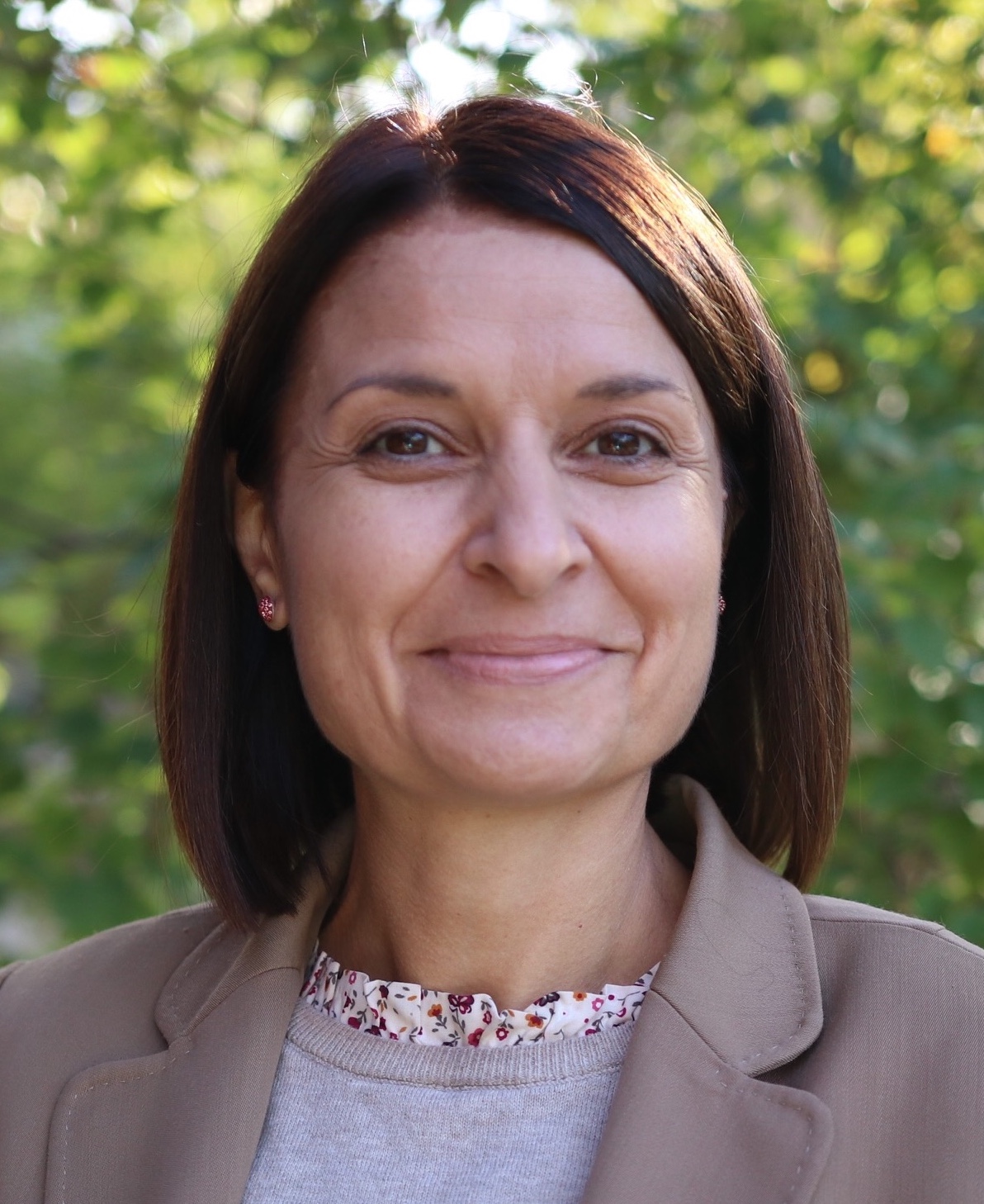 Professor and LAS Dean’s Professor in the Greenlee School of Journalism and Communication at Iowa State University. She is the Editor-in-Chief of Journalism & Mass Communication Quarterly and editor of Global Journalism: Understanding World Media Systems. Dimitrova’s research interests include cross-cultural journalism studies, political communication, and media framing of political news events. Her scholarship has examined the impact of social media on political knowledge and civic engagement as well as refugee communications. Dimitrova’s research has been published in leading journals such as Communication Research, Journalism & Mass Communication Quarterly, New Media & Society, Press/ Politics, and the Journal of Computer-Mediated Communication.
Professor and LAS Dean’s Professor in the Greenlee School of Journalism and Communication at Iowa State University. She is the Editor-in-Chief of Journalism & Mass Communication Quarterly and editor of Global Journalism: Understanding World Media Systems. Dimitrova’s research interests include cross-cultural journalism studies, political communication, and media framing of political news events. Her scholarship has examined the impact of social media on political knowledge and civic engagement as well as refugee communications. Dimitrova’s research has been published in leading journals such as Communication Research, Journalism & Mass Communication Quarterly, New Media & Society, Press/ Politics, and the Journal of Computer-Mediated Communication.
David O'Shields is an award winning, internationally respected documentary filmmaker and has been a working member of the production community since 1985. Through his independent documentary film production company, David O'Shields Film, he pursues his dream of making important and engaging documentary films. In addition to his work in public television, he has extensive experience as a cameraman and director in commercial television. As an Assistant Adjunct Professor and Documentary Filmmaker in Residence at the University of Northern Iowa, he has taught the handbook for the past three years and brings significant insights to media literacy pedagogy.

